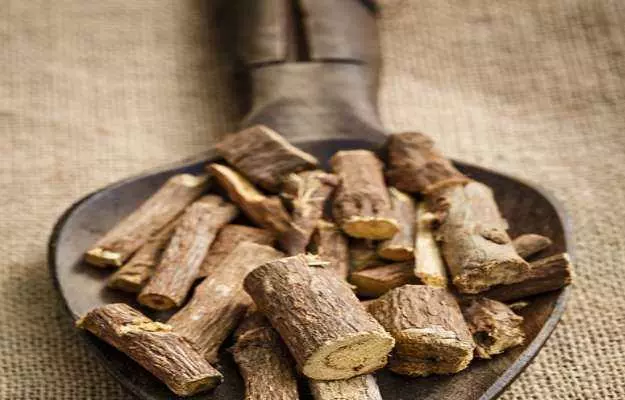Liquorice is a perennial herb that is well known for its sweet and woody flavour. Can’t recognise the name? I am sure you would have heard of mulethi, maybe even tried a mulethi tea for a sore throat. In fact, it is one of the most commonly used herbs for digestive and respiratory problems. But unfortunately, not many of us are aware of the medicinal miracle this plant is.
Most of the medicinal benefits of liquorice are stored in its roots and underground stems. It contains antioxidants, has antimicrobial properties, acts as an anti-inflammatory drug and possesses hepatoprotective characteristics.
Mulethi has long since been used for the treatment of stomach inflammation in Greece and Egypt. It has been mentioned in the ancient Assyrian tablets and was also found in large proportions in King Tut’s tomb. Hippocrates, the father of modern medicine, has written about the use of liquorice root for preventing thirst. And to date, this sweet and bitter root remains close to the heart of herbalism.
Apart from having numerous medicinal properties, it is also a popular seasoning herb because it is 50 times sweeter than sugar. In Sanskrit, liquorice is called Yashtimadhu, which accurately means “sweet root”. It has a cooling effect on the body and is bulky to digest.
Many people use it as shampoo and it is also a primary ingredient in some kinds of toothpaste. Liquorice supplements are available commercially as capsules, tablets and fluid extracts.
Did you know?
Liquorice candy is actually flavoured by anise!
Some basic facts about Liquorice roots:
- Scientific Name: Glycyrrhiza glabra
- Common Name(s): liquorice root, liquorice, liquorice, sweet root, Mulethi
- Family: Fabaceae
- Parts used: Stems and roots
- Sanskrit name: Yashtimadhu
- Native Region and Geographical Distribution: Native to Asia and the Mediterranean region. It is also grown in northeast Europe.




























